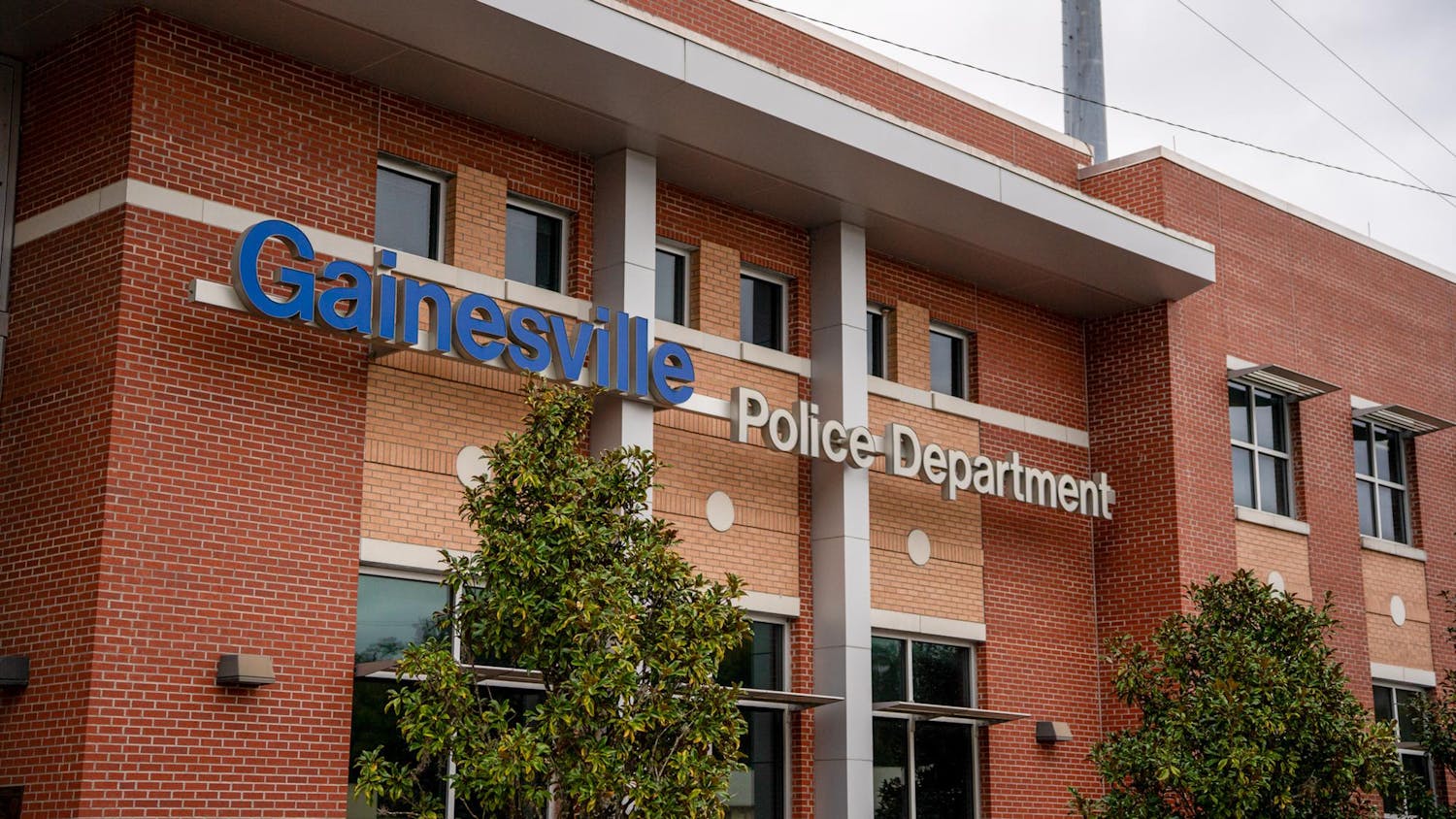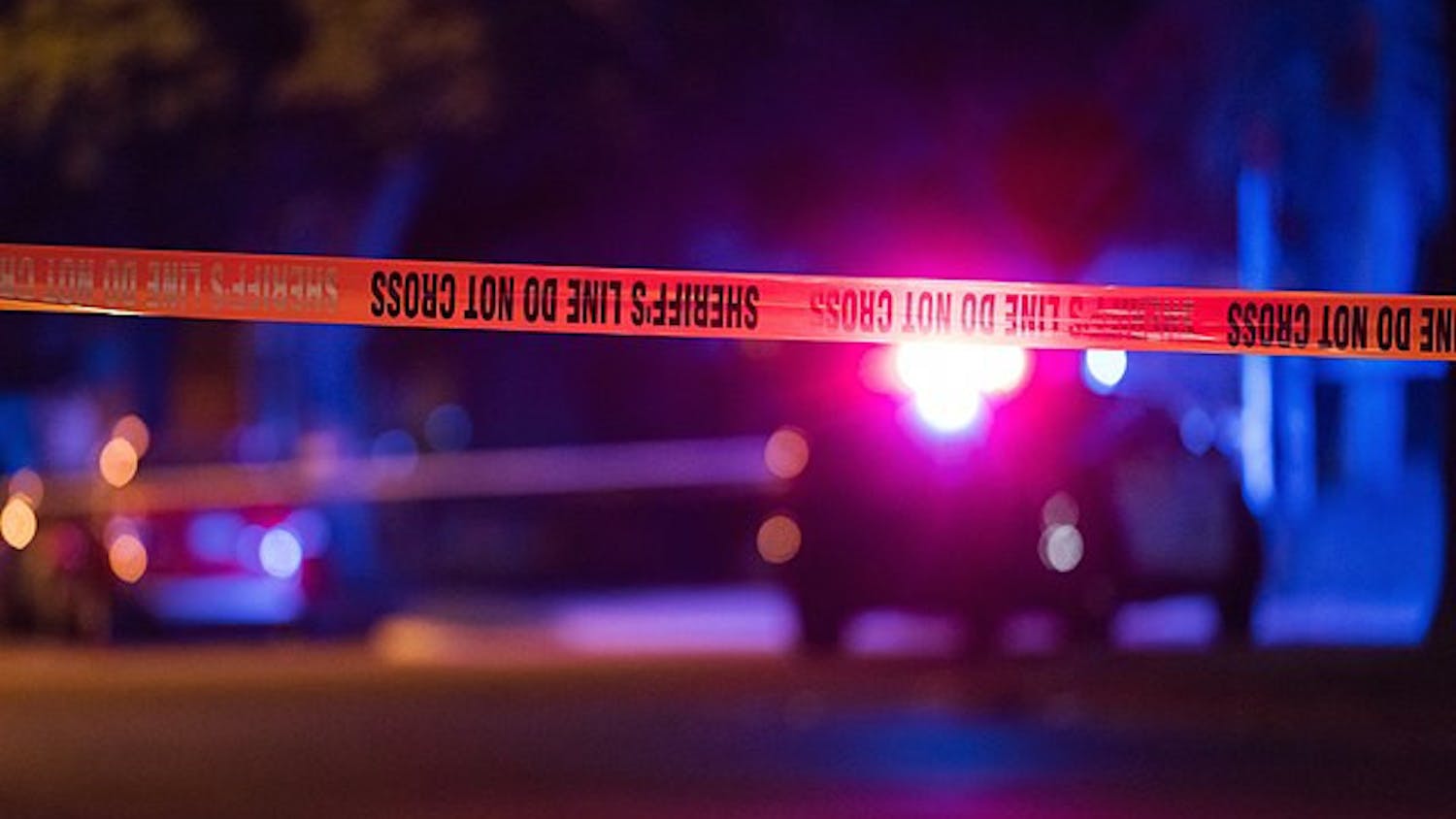Law enforcement recruitment is the top priority for Alachua County’s newest sheriff.
Emery Gainey has spent his first month as sheriff combatting staff shortages and advocating for increased funding from the state and county.
Gainey, who began his position Oct. 2 under Gov. Ron DeSantis’ appointment, is looking to fill 248 employee vacancies, including telecommunications, human resources, corrections and deputy sheriff roles.
The hundreds of vacancies follow a nationwide trend of law enforcement staffing deficits.
Gainey said employees are having to work longer hours due to the Alachua County Sheriff’s Office being down 26% of its full staff, as of Oct. 30.
“I am hampered quite a bit with the lowness of staff because I’ve got men and women literally going from call to call and not doing proactive patrols,” Gainey said.
At the state level, a law that took effect last year has sought to recruit and retain qualified law enforcement personnel through bonuses, academy scholarships and family benefits.
A July 26 news release from the governor’s office said more than 2,265 bonuses had been issued across the state through the recruitment bonus program. At that time, 668 law enforcement recruits relocated to Florida, according to the news release.
Although the bill demonstrates the state's commitment to law enforcement amid staffing concerns, Gainey said funding is critical at the local level, too.
Gainey has worked with the county commission to secure more funding, met with police departments throughout the county and communicated with other county sheriff’s departments. The Alachua County Sheriff’s Office is reconnecting with previous employees to rehire staff who can follow an expedited training process and “hit the ground running,” Gainey said.
Gainey, who served as the Marion County Sheriff from 2016 to 2017 under former Gov. Rick Scott’s appointment, said Florida's leadership prioritizes law enforcement, setting agencies up for more success.
“We've had some great governors who recognized the need to have strong law enforcement in this state,” Gainey said.
Despite Gainey’s history of donating to Republican candidate’s campaigns, including Florida Sen. Keith Perry and Florida Rep. Chuck Clemons, the sheriff said political affiliation plays no role in his position. His hiring was based on previous leadership experience as Alachua County’s Chief Deputy, Marion County’s sheriff and Chief of Staff for Attorney General Ashley Moody, he added.
“My entire law enforcement career [has been] about what's fair and has been equal to all citizens of the county,” Gainey said. “When you dial 911 we don’t ask if you’re Republican or Democrat. We simply send help.”
Under his leadership, Gainey said he strives to connect with all community members. He aims to make the office’s Public Information Bureau more accessible to residents and have more in-person interactions with citizens.
Art Forgey, an Alachua County Sheriff’s Office spokesperson, said the department is taking new routes to bridge the gap between law enforcement agencies and the community for hiring purposes. The sheriff’s office attends virtual career fairs, visits police academies and connects with military services.
“We realized that maybe some of the traditional ways that we used to try to get employees in the door don't work anymore,” Forgey said.
Along with the state’s one-time $5,000 bonus to new law enforcement recruits, Forgey said. Alachua County also offers an additional $5,000 bonus for certified law enforcement officers, telecommunicators and detention officers.
Forgey said the reasons for the ongoing law enforcement vacancies across the nation, state and county are difficult to determine. But two possible explanations involve generational perspectives and negative perceptions of law enforcement in the media, he added.
“It's a tough time for all of us trying to get people in the door and get them into public safety jobs,” Forgey said.
Hiring requires extensive background checks and polygraph tests. The sheriff’s office is working longer evenings and through the weekends in an effort to streamline the hiring process, Forgey said.
Thomas Ackerman oversees the police academy at the Institute of Public Safety at Santa Fe College. Recruitment numbers into the program dropped by more than half during the COVID-19 pandemic, but enrollment has since returned to previous numbers, he said.
Local law enforcement agencies are increasingly sponsoring students they are interested in hiring after graduation, which is when an agency pays a student’s police academy tuition.
“It is so competitive to get the better recruits on board that the agencies are picking them up earlier rather than waiting until they have finished the academy, when other agencies have a crack at them,” Ackerman said.
Howie Garcia, a 20-year-old police academy student from California, began the Institute of Public Safety’s program July 3 and will graduate Nov. 21. His dad was a marine and his mom was a deputy sheriff in California, so law enforcement was always a clear career path, he said.
Negative public perceptions toward law enforcement are difficult to ignore, but he said he knows his classmates in the police academy are committed to service.
“Our instructors definitely hit on the knowledge that we need to be a good cop,” Garcia said. “Of course, there's a few people that make the whole community look really bad, but there's a lot more that are amazing.”
The severe shortage of qualified officers is worse than most people realize, he said. Staffing concerns are not discussed in-depth in his classes. Training is also physically and mentally demanding, which can turn potential students away from the program, Garcia said. He hopes to become a U.S. Marshal for a Special Operations Team.
“I think a lot of people who mean well are maybe a little bit intimidated by it,” he said. “You definitely need that drive to go through this kind of stuff.”
Contact Sophia Bailly at sbailly@alligator.org. Follow her on Twitter @sophia_bailly.

Sophia is The Alligator's Fall 2025 digital managing editor. She previously served as the enterprise editor and university editor, as well as a beat reporter for three semesters. She has also interned for The Times-Picayune and The News & Observer as a politics reporter. Her non-journalistic passions include long-distance running, reading mystery books and listening to Florence + The Machine.






